

The Unexpected King: Jesus in the Book of Mark
THE SHAPING OF EXPECTATIONS
This past week has not gone according to plan. Every evening, I think about what’s on the schedule for the following day – what needs to be accomplished, the to-dos waiting to be checked off the list. Most of my days as a homeschool mom are pretty predictable. There may be a few sidetracks here and there, but our rhythm stays the same.
But this week? It seemed like every day veered off course, and no matter how hard I tried, I couldn’t steer the ship back on track. All of it made me think about our expectations – the ones we place on our days and routines, our plans, our children, even the future. We hold onto these things, hoping that everything will turn out a certain way. But if we’re honest, how often do we ever get it right? Maybe occasionally, but for the most part, God’s plan for our lives far exceeds our expectations – whether in a single day or across the span of a lifetime.

Behold the King Who Steps Into Our Waiting: In the Book of Matthew
Advent has a way of slowing us down, whether we want it to or not. The lights come out, the days get shorter, and something inside us starts paying attention again. This year, for some reason, the Lord has significantly slowed everything down for me. Even though I’m still leading a discipleship ministry, knee-deep in a doctoral program at Asbury, and raising four kids (one who is a borderline adult!), my life feels slower. Perhaps it’s because God is reshaping my intentionality. Over the past few years, I’ve had to learn that I need to be particular about where God uses me. And honestly, working through the Behold Path has helped me do exactly that.
Back in 2022, the word the Lord kept whispering to me was “intentional.” And as I learned that our God is intentional—and His Son intentional in every step of His earthly ministry—I found myself seeking that same intentionality in my own life.
And maybe that’s why Matthew opens his Gospel the way he does—not with glitter, not with angels singing, but with a long list of names and stories woven together by one quiet thread:

The King Who Comes Close
Some passages of Scripture feel like thunder in the distance; you hear them before you understand them. Zechariah is one of those books. To my absolute delight, it is full, I mean FULL of the word, “behold.” It is also full of visions and symbols — crowns and horses, lampstands and scrolls — but woven through the imagery is a heartbeat. The heartbeat of:
A Person.
A King.
A King who does not stay distant.
A King who draws near.
Zechariah writes to a weary people: a people who returned home from exile with hope in their hands and disappointment in their eyes. The temple was only a shadow of what it once was. Their joy was thin. Their faith was tired.
And into that moment of joyless and faith fatigue, God speaks:
“Behold!”

Behold! The Rebuilder: Finding Yeshua in Haggai
When God spoke through the prophet Haggai, His people had returned from exile, but their hearts remained distant. They had laid the temple’s foundation sixteen years earlier, but opposition and distractions had halted the work. Haggai’s message was simple yet powerful: “Consider your ways.” (Haggai 1:5)
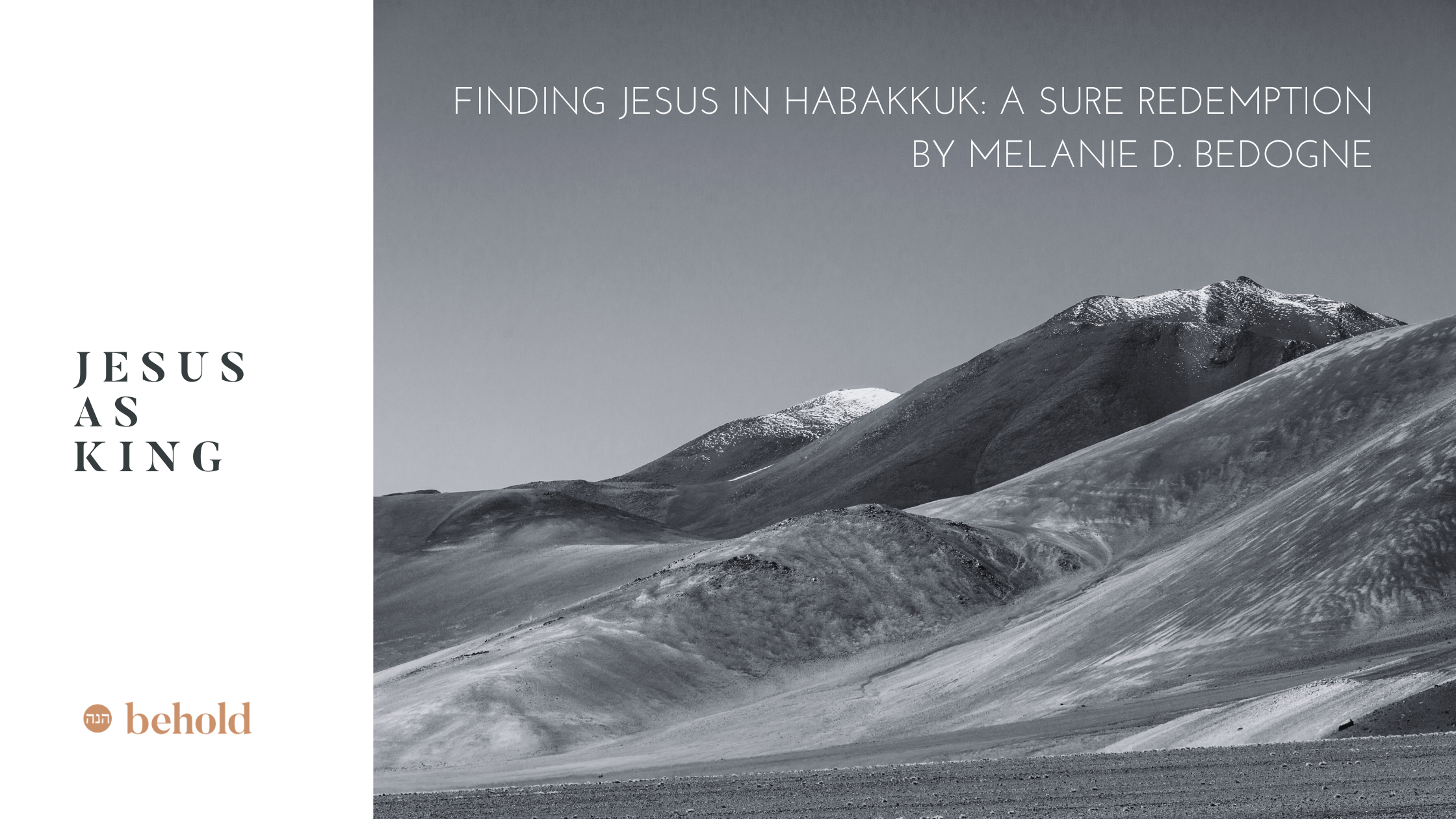
Jesus in the Book of Habakkuk: A Sure Redemption
The book of Habakkuk is a conversation between the priest/prophet Habakkuk and God, based on a vision given to him. Unlike many of the other prophets, Habakkuk does not directly address the people. Instead, he records his raw dialogue with God during a time of national turmoil.
This powerful exchange between God and His prophet took place in the Old Testament between the fall of Israel and the fall of Judah, most likely just before the Babylonian invasions of Judah (beginning in 605 B.C.).
Habakkuk is one of the least-known prophets in Scripture. In fact, he is only mentioned in this book, in two verses:
● Habakkuk 1:1: “The oracle that Habakkuk the prophet saw.”
● Habakkuk 3:1: “A prayer of Habakkuk the prophet, according to Shigionoth.”
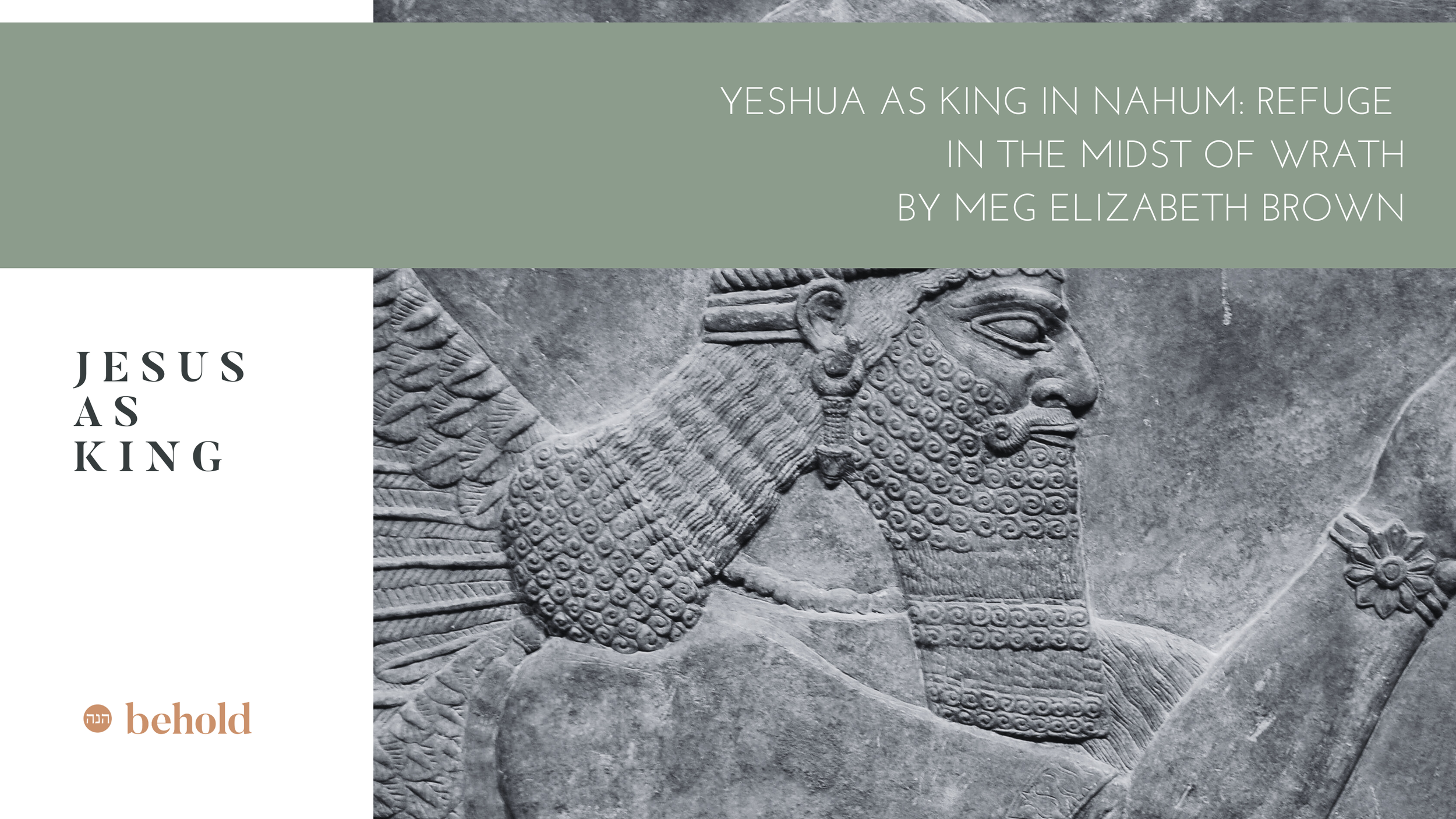
Yeshua as King in Nahum: Refuge in the Midst of Wrath
Since I was a child, I’ve struggled with lying. It started as a way to protect myself from shame, but over the years, it became a pattern that was hard to shake. By God’s grace, I’ve learned to confess, repent, and walk toward truth. But even now, I see how easily I can slip back into old habits. (I mean, I am a flawed person and still make mistakes!)
That’s why when I read Nahum, I see myself mirrored in Nineveh. They had once repented in Jonah’s day, but by Nahum’s time, they had drifted back into corruption. The lesson? We can’t coast on yesterday’s repentance.
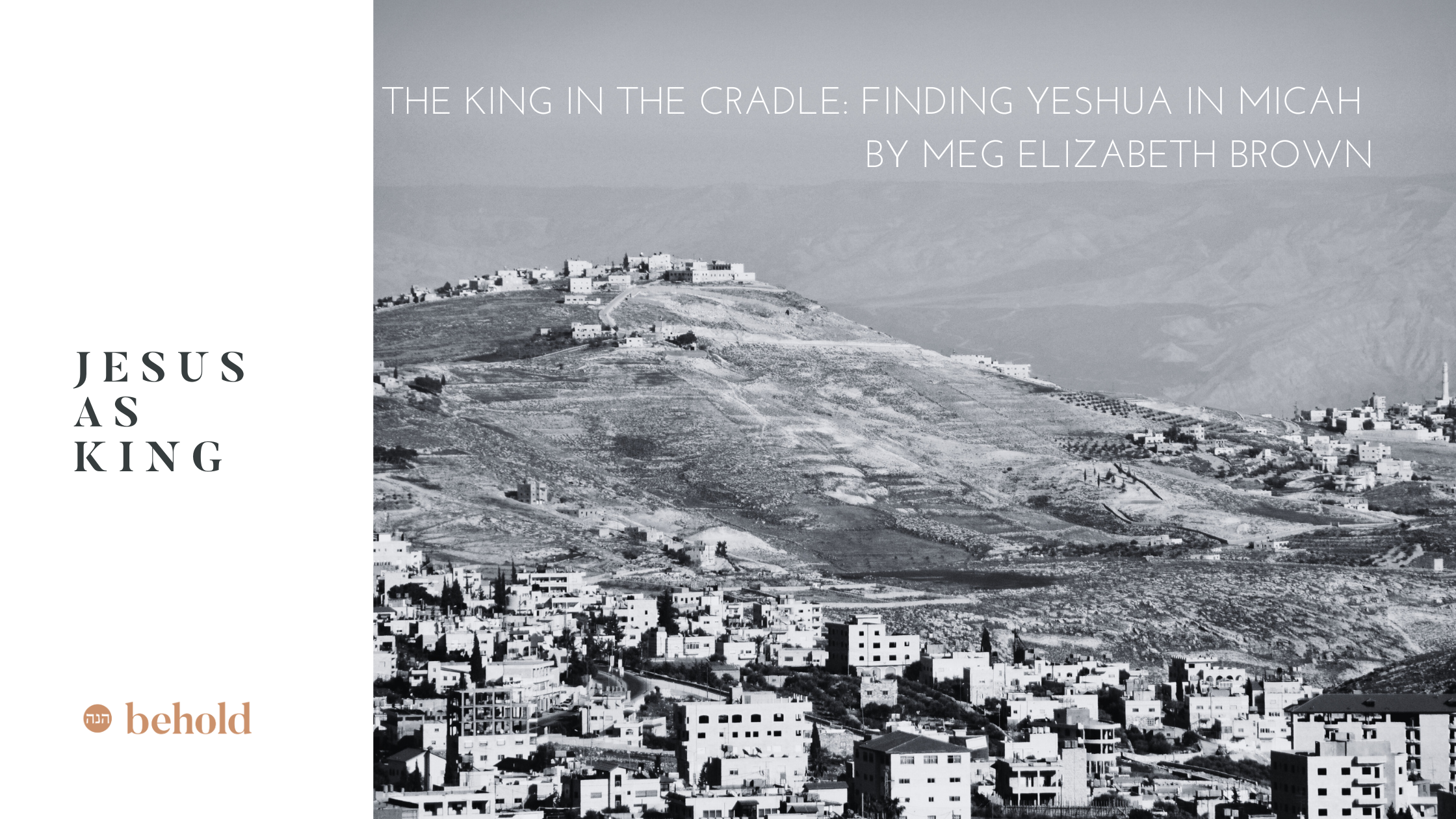
The King in the Cradle: Finding Yeshua in Micah
In the quiet of a backwater village, forgotten by most and overlooked by many, God penned one of the most stunning plot twists in history. Micah, a prophet in the southern kingdom of Judah, wasn’t just railing against injustice and idolatry. He was also pointing forward, whispering of a King who would come not in might, but in meekness. A ruler not from Jerusalem’s palace, but from Bethlehem’s cradle.
This King wouldn’t be like the others. He wouldn’t use the throne to oppress but to shepherd. He wouldn’t wield power for His own gain but lay it down for the sake of His people. His origins? From of old. From ancient days. This was no ordinary leader; this was Yeshua, the Eternal One wrapped in human flesh.
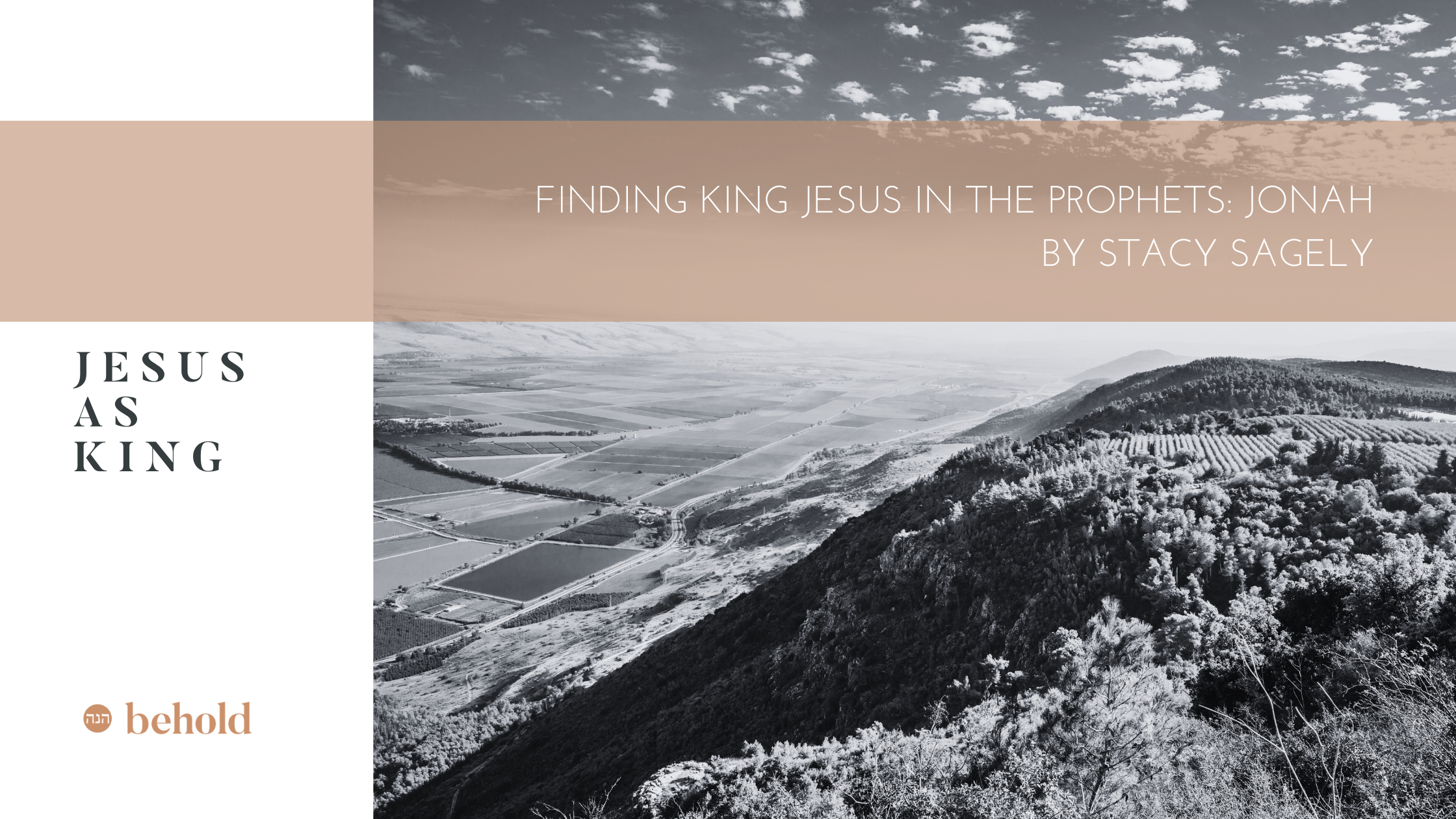
What Jonah Didn’t Say: Yeshua in the Prophets
When the word of the LORD came to Jonah, the instruction for a prophet was clear: Go to the great city of Nineveh and cry out against its wickedness. Fifty years before Assyria would capture the last part of Israel’s northern kingdom, the LORD was sending a warning of certain doom to its capital. Before taking action, the slow to anger and abundant in lovingkindness God of Israel was giving these people a chance to repent. It’s exactly what we would expect from the God of our salvation, but Jonah wanted no part of it.

A Foreshadowing of the Righteous King
Have you read the book of Obadiah recently? Unless you're on a chronological reading plan, probably not. The tiniest book in the Old Testament, just 21 verses long, is easy to overlook. But don’t let its size fool you. Obadiah is a small but powerful prophetic book, filled with messianic and redemptive truths that speak deeply to the human heart and ultimately point to the return and reign of Jesus Christ, when He will make all things new.
Though rooted in a specific moment in history, Obadiah’s message carries timeless truths about pride, justice, restoration, and the promises of God, including the one first given to Abraham in Genesis 12:1-3:
"I will bless those who bless you, and him who dishonors you I will curse..."

Finding King Yeshua in the Fire: Beholding the Gospel in Amos
ometimes, God roars. Speaking powerfully to us and the world, we often forget to listen, or perhaps we become desensitized. His roar can turn into white noise. Regardless of the reason, the prophet Amos starts with a divine interruption.
“The LORD roars from Zion and utters his voice from Jerusalem…” (Amos 1:2)
This isn't a whisper. It's not a gentle nudge. It's the sound of God crying out for justice, righteousness, and remembrance. Amos, a shepherd and fig-picker from Tekoa—not a “professional prophet”—shows up in the Northern Kingdom during a time of political peace and economic prosperity to say, “Hey guys! Things are not okay.”

When the Locusts Leave and the King Arrives
If you’ve ever read the book of Joel, you know it begins with something unexpected—bugs. A swarm of locusts so devastating that it strips the land bare and leaves God’s people shaken. But Joel isn’t just about agricultural disaster—it’s about spiritual disaster too. And yet, through it all, the book leads us toward one profound hope: a coming King who restores.
You won’t find the name “Jesus” in the book of Joel, but you’ll feel His presence on every page—especially in the promise that one day, God would pour out His Spirit on all people (Joel 2:28). Sons and daughters, old and young, even the servants. Everyone.

The God Who Weeps and Woos
When I consider the attributes of God, I meditate on words like: present, all-knowing, sovereign, compassionate, forgiving, full of grace and truth. These words flow freely. But often in the mix of the comfort and peace these words give, I forget to consider the God who feels sorrow over all those daily choices that move me towards the sins that continue to cling so closely (Hebrews 12:1). When was the last time I pictured a God who weeps over my choices? He is the God who remains faithful to His word—even when I am faithless (2 Timothy 2:13), but that doesn’t mean that His faithfulness does not come at a price.

The Thread of Yeshua in Isaiah’s Tapestry
he Book of Isaiah has sixty-six chapters, comparable to the sixty-six books of the Bible. It is a book that gives us the story of God and His love for His covenant people (Israel), as well as His heart for the Gentile nations who will hear the testimony of His people through the words of His prophets. From the very first chapter, we see the God of Israel grieving over His people’s lack of understanding as they continuously bring worthless offerings into His courts (Isaiah 1). He commands them to wash themselves, remove the evil of their deeds, and seek justice. But in the chapters that follow, it becomes clear that this cannot be done in their strength alone; they will need a Mediator to take them into the LORD’s glorious presence (Isaiah will call Him a Beautiful Branch--Isaiah 4:2).
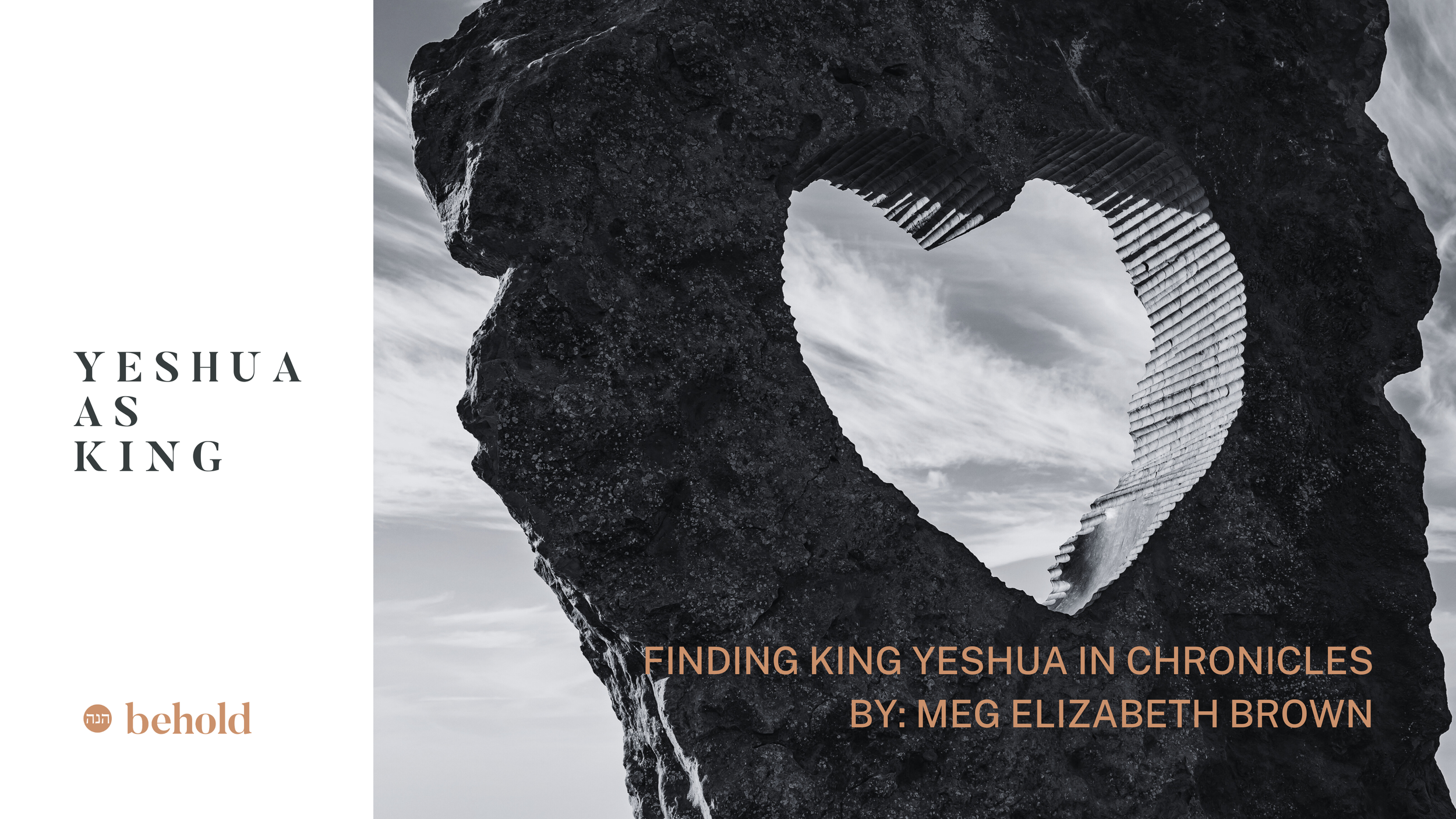
Where Can We Find King Yeshua in Chronicles?
Have you ever skipped Chronicles thinking, “Haven’t I already read this in Kings?”
You’re not alone. Many readers glance at the familiar stories and move on. But hidden between the genealogies and royal records lies one of Scripture’s richest portraits of future hope. A hope anchored in worship, repentance, and the long-awaited King.
Chronicles invites us to look backward, not just for the sake of history, but to look forward and behold what’s coming. Or rather, who’s coming.
Let’s take a fresh look at the books of Chronicles and ask the question:
Where can we find King Yeshua?
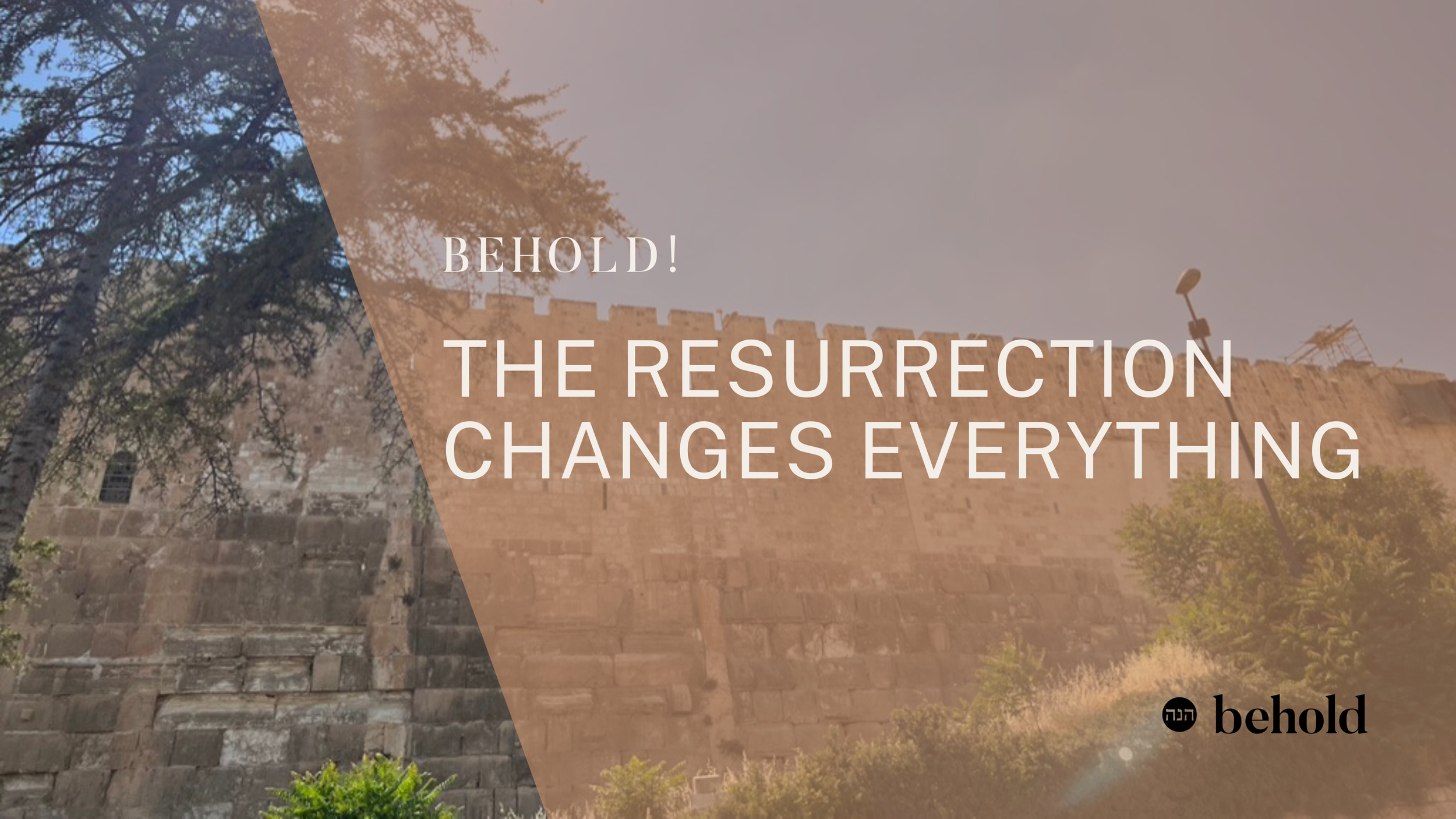
Behold! The Resurrection Changes Everything!
In 2022, I was honored to take a class in Israel through Jerusalem University College. I came alive to the Bible in ways I never thought possible. I kept a journal during my time there so I wouldn’t forget the impact. On Day 3, I wrote:
“After waking with stiff joints and a blister on my toe, I strapped on my water bottle, grabbed my bag, and threw on a hat to shield my sunburnt forehead. Our professor, Dr. John “Jack” Beck, lit up when he explained that the JUC building we stood in was part of the original 1st-century Jerusalem city wall. 🤯”
We visited the Upper Room—quiet, rebuilt, but stirring. But I cried when I stepped outside and saw the horizon of Jerusalem. I imagined Jesus looking out across the city just hours before His arrest. What must He have felt, knowing what was to come?
Later, we stood on the exact steps where Pilate may have convicted Jesus. The stones beneath our feet were original. I stood silently, wondering: Was I in the place of the raging crowd? A Roman soldier? Or was this where Jesus stood, silent and surrendered?
Then came the part that undid me. We stopped in what looked like an ordinary alley—lined with dumpsters and small cafés. Our professor told us it had once been a quarry surrounded by tombs. And what do you do with an old quarry surrounded by graves? You turn it into a place of execution.
“The realization hit: Jesus might have been crucified right here.”
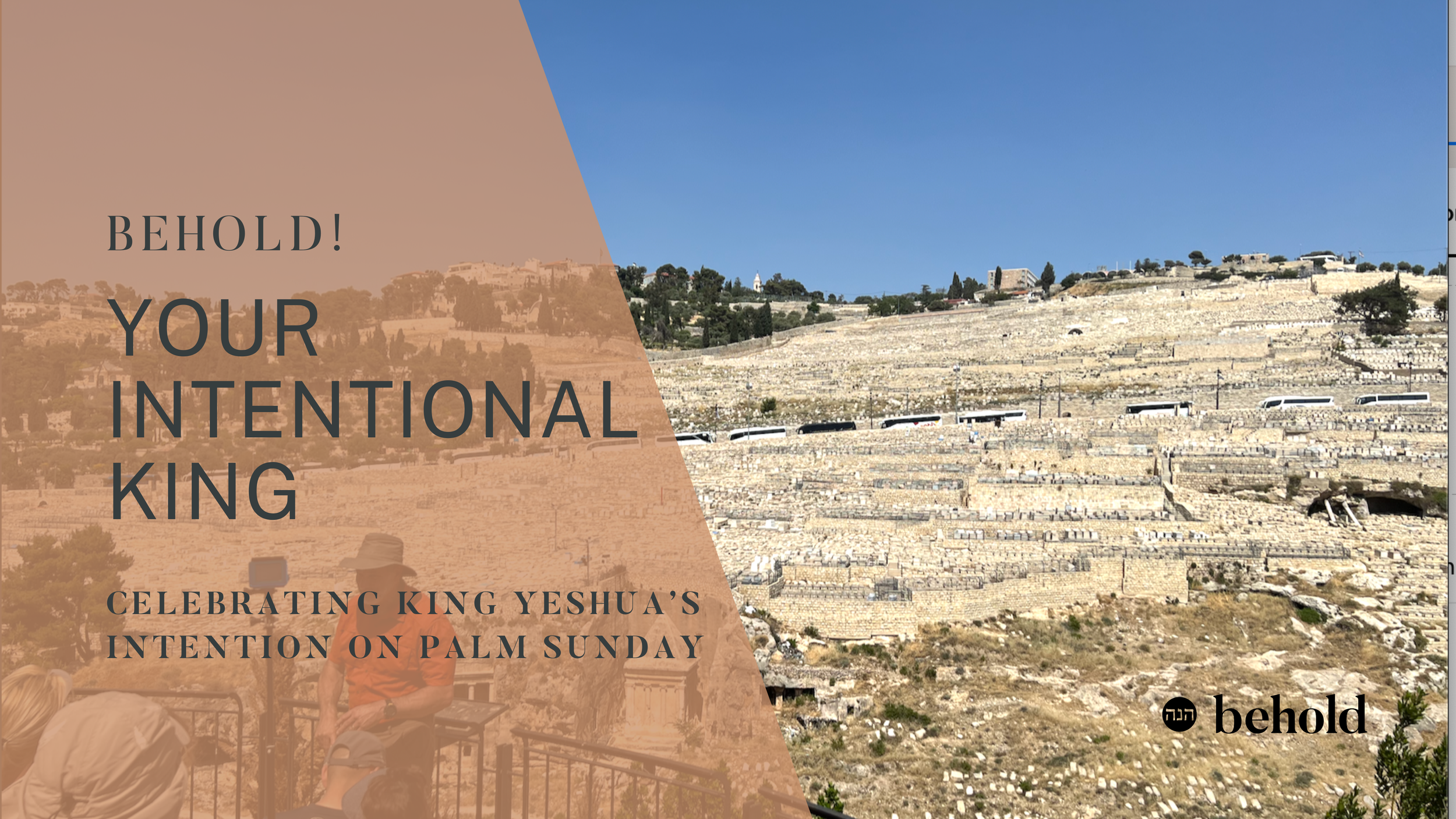
Behold, Your Intentional King!
It was close to 100 degrees, but since it was just after 4 pm, the breeze from the Levant Wind (easterly wind from the Mediterranean Sea) blew in, cooling us through our moisture-wicking hiking clothes. As we turned the corner from walking alongside the eastern Temple Mount wall, away from the Mount of Olives, our professor struck out ahead, his long legs causing us to walk double time to catch up. He was headed towards a gate we had walked through on one of our first days, but he turned and stopped short today. Beckoning for us to stand on the narrow sidewalk that led into the Lion’s Gate.
It was at this special location that he began to explain how this was the very gate through which Jesus rode a humble donkey during His Triumphal Entry into Jerusalem over 2,000 years ago. This road led from Bethany down the Mount of Olives right to this Gate, which was called the Sheep Gate back then- the very spot where sacrificial lambs were brought into the Temple area. It struck me in that moment that, not only did the King enter through these gates amid joyful praises, beautiful music, and heartfelt worship, but He also passed through the LION/LAMB Gate. Is it just a coincidence? I've come to understand that everything about our faith is intentional. We serve a King who acts with purpose and intention.

King Yeshua: Son of Man in Daniel
As a child and teenager, I often scratched my head whenever I read a story in which Jesus referred to Himself as the Son of Man. I mean, wasn’t Jesus God’s Son? Why would He call Himself a Son of Man? It wasn’t to clarify His humanity but something much deeper.
In fact, of all the books in the Old Testament, by using this seemingly innocent “nickname” for Himself, Jesus was explicitly pointing to EXACTLY who He was and is whenever He used it. Beyond the famous lion’s den and fiery furnace narratives, did you know that we can undoubtedly behold King Yeshua—Jesus—in the pages of Daniel? The people around Jesus at the time would have immediately understood what He was doing.
Daniel is often perceived as a book filled with inspiring tales of faithfulness and courage. The connection between Daniel’s "Son of Man" and Jesus’ self-identification is particularly intriguing.

